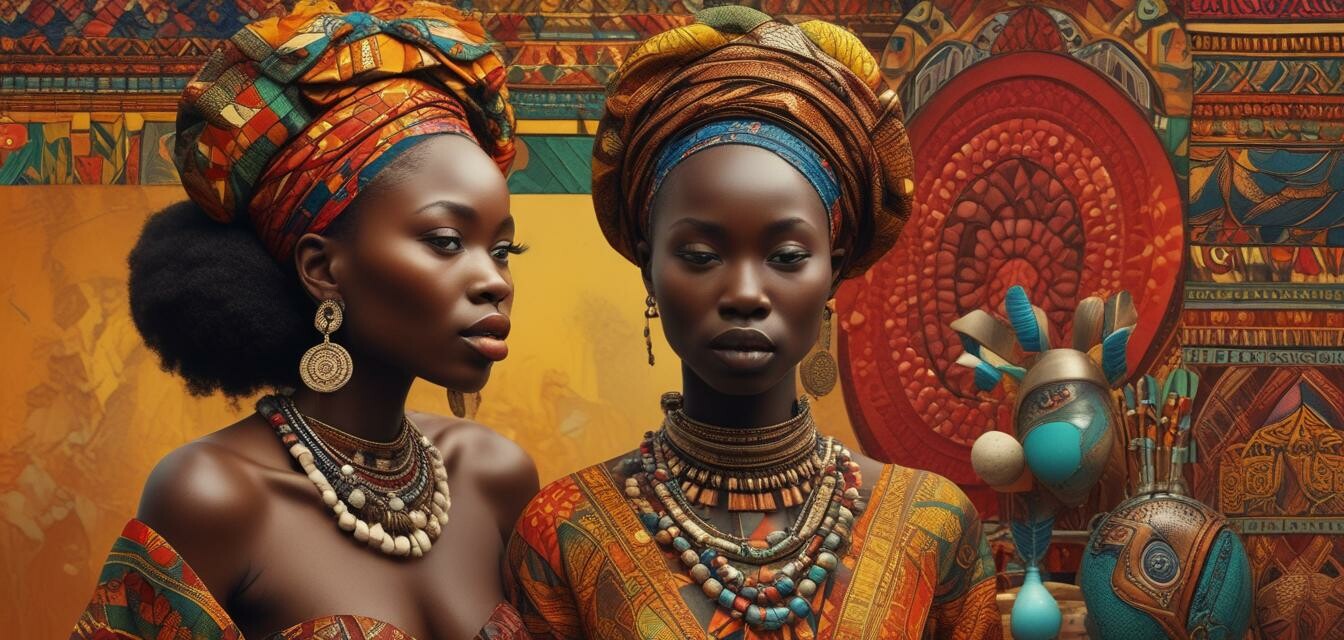
The influence of African culture on modern beauty trends
Key Takeaways
- African beauty traditions impact contemporary beauty practices.
- Natural ingredients from the African continent enhance modern skincare products.
- Representation and authenticity play vital roles in current beauty trends.
- Cultural heritage is celebrated through beauty storytelling.
- Beauty brands are increasingly inspired by African styles and elements.
The beauty industry is constantly evolving, driven by trends that reflect cultural values and heritage. One significant influence that has surfaced is the deep-rooted impact of African culture on modern beauty trends. From skincare to hairstyles, the infusion of African traditions showcases the beauty and richness of its heritage. In this article, we will explore how these traditions shape contemporary beauty practices and the products that emerge from this unique fusion.
The historical significance of beauty in African cultures
Throughout history, beauty in African cultures has been more than just skin deep; it's an intricate blend of cultural identity, spiritual significance, and community bonds. Various tribes and communities across Africa have their distinct beauty practices rooted in tradition. For instance, body adornment using beads, scarification, and intricate hairstyles often served as markers of identity and status within the societies.
Rich cultural practices
In many African cultures, beauty rituals have intertwined practical functions with exquisite artistry, leading to practices that are as vibrant as the traditions they emerge from. Here are a few examples:
- Shea Butter: This natural product comes from the nut of the African shea tree. Widely used for moisturizing and nourishing, it's a staple in many beauty regimens.
- Hair Braiding: From intricate cornrows to colorful extensions, hair braiding has been a form of self-expression and cultural representation.
- Henna: This natural dye is often used for body art, especially among certain communities, to enhance beauty and as part of celebration rituals.
Modern beauty trends influenced by African heritage
As the beauty landscape continues to evolve, many brands and influencers channel African aesthetics and practices. This appropriation doesn't just serve aesthetic purposes; it signifies a broader embrace of cultural identity in beauty.
Emergence of natural beauty products
Today, consumers are increasingly inclined toward products that emphasize natural ingredients. Many beauty brands are sourcing ingredients directly from Africa, tapping into the continent's rich resources, such as:
| Ingredient | Source | Benefits |
|---|---|---|
| Marula Oil | Marula tree in Southern Africa | Hydrates and nourishes skin and hair |
| Baobab Oil | Baobab tree | Rich in vitamins, great for elasticity |
| Rooibos extract | South Africa | Antioxidant properties, soothes skin |
Representation and authenticity in the industry
Representation is a crucial element when defying stereotypes and breaking cultural barriers. Authenticity in marketing African-inspired beauty products contributes to a richer discourse surrounding beauty. This representation fosters a sense of belonging and pride within the African community and allows for diverse narratives to shine through.
Influencer culture and storytelling
Beauty influencers play a pivotal role in how African culture is portrayed within the beauty realm. By sharing their journeys, they amplify voices and experiences that resonate with many individuals. Through social media, they educate audiences about African traditions and the relevance of these practices in contemporary beauty lifestyles. Notable trending topics within the African beauty community include:
- Celebrating natural hair
- Embracing skin diversity
- Highlighting Afro-centric beauty products
The response from beauty brands
As a response to the evolving beauty landscape, several beauty brands are creating lines that reflect African culture. These brands often employ designers and influencers from the African community to resonate with authenticity. In addition to developing loyal clientele, these collaborations challenge the traditional beauty norms.
Pros
- Cultural awareness and appreciation in beauty practices.
- Increased demand for natural and sustainable products.
- Diverse product offerings catering to various skin tones and types.
Cons
- Potential for cultural appropriation without acknowledgment.
- Over-commercialization of traditional products.
- Quality concerns regarding sourced ingredients.
Conclusion
The influence of African culture on modern beauty trends is undeniable. As we celebrate these cultural legacies, it is crucial to ensure their authenticity is maintained and respected. This journey isn't merely about aesthetics but acknowledges and honors deeply-rooted traditions reflecting unique identities. Embracing the essence of African beauty will only lead to more inclusive and diverse beauty practices in an ever-evolving landscape.